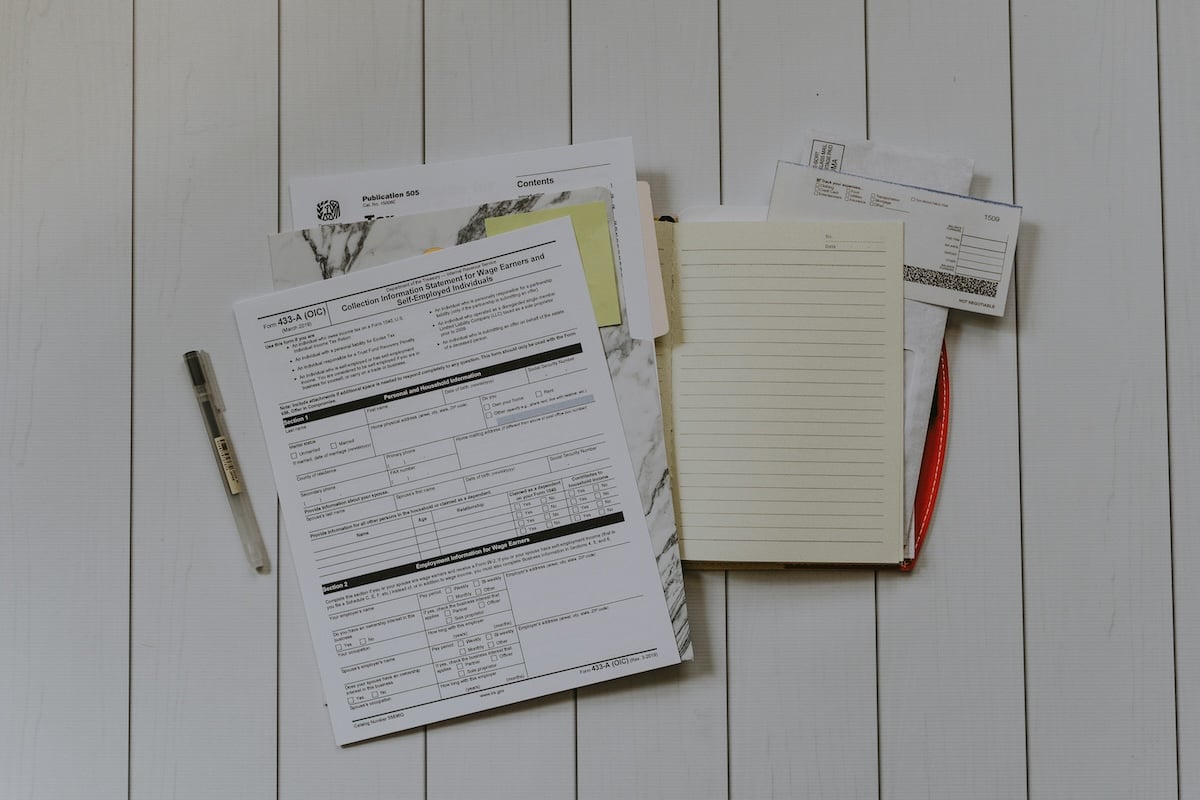Table of contents:
- Understanding tax residency
- Personal income tax rates
- Tax rebates and reliefs
- Filing and payment procedures
- Tax clearance for non-citizens
- E-filing and forms
- Special considerations for property investors
- Hypothetical scenario: Tax planning for property buyers
- Conclusion
Understanding Singapore’s personal income tax is important for residents and non-residents, especially for individuals involved in property investments.
The following guide offers a comprehensive overview of tax rates, reliefs, filing procedures, and special considerations for property investors.
Understanding tax residency
Criteria for tax residency
- Residents: To be classified as a tax resident in Singapore, you must be a Singapore Citizen, Permanent Resident living in Singapore (excluding temporary absences), or a foreigner who has resided or worked in Singapore for at least 183 days in the previous year.
- Non-Residents: If you do not meet these criteria, you are classified as a non-resident for tax purposes.
Importance for property investors
Understanding tax residency status is important as it can affect the amount of tax payable on income, including rental income from properties. Clarifying your residency status can assist in effectively planning your finances.
Personal income tax rates

Progressive tax rates for residents
Singapore employs a progressive tax rate system for residents. The tax rates for 2024 are as follows:
- 0% on the first S$20,000
- 2% on the next S$10,000
- 3.5% on the next S$10,000
- 7% on the next S$10,000
- 11.5% on the next S$40,000
- 15% on the next S$40,000
- 18% on the next S$40,000
- 19% on the next S$40,000
- 19.5% on the next S$40,000
- 20% on the next S$40,000
- 22% on the next S$320,000
- 23% on income above S$500,000 up to S$1 million
- 24% on income above S$1 million
Flat tax rates for non-residents
Non-residents are subject to a flat tax rate of 24%. However, employment income is taxed at either 15% or the progressive resident rates, depending on whichever results in a higher tax amount.
Impact on disposable income
Considering tax liabilities is important for property investors when evaluating their disposable income for investments due to the correlation between higher income brackets and tax rates.
Tax rebates and reliefs
2024 tax rebate
In 2024, resident taxpayers are eligible for a 50% tax rebate, capped at S$200, to help address the increasing cost of living.
Key tax reliefs
- CPF Relief: Contributions to the Central Provident Fund (CPF) are eligible for tax relief.
- Rental reductions: Expenses related to generating rental income, such as property tax, mortgage interest, and maintenance, can be deducted.
- Donations: Donations to approved Institutions of Public Character (IPCs) qualify for a 250% tax deduction.
Read this: Property tax for homeowners in Singapore: How much to pay + Rebates + Deadline
- Course Fees Relief: Up to S$5,500 per year can be claimed for professional courses.
- Life insurance: Relief is available if CPF contributions are below S$5,000.
- Parent/Handicapped Parent Relief: Reliefs range from S$5,500 to S$14,000, depending on living arrangements and the number of dependents.
Benefits for property buyers
These reliefs can significantly impact your taxable income, enhancing your ability to invest in property by maximising tax savings.
Filing and payment procedures

Key filing dates
- E-Filing Deadline: April 18
- Paper Filing Deadline: April 15
Taxpayers who file their taxes electronically must do so by April 18. The e-filing process can be completed through the IRAS myTax Portal, offering a convenient and efficient way to submit returns online. An alternative option is to file returns using paper forms, with a deadline of April 15. Penalties can be incurred for missing these deadlines, so it is advisable to mark the dates and prepare necessary documents in advance.
Notice of Assessment (NOA)
Once a tax return is submitted, the IRAS issues an NOA between May and September. The NOA outlines the amount of tax owed, and it is crucial to pay this amount within 30 days of receiving the notice. Failure to do so will incur a penalty of 5% of the outstanding amount. If there is disagreement with the NOA, it is possible to file an objection within 30 days of receiving it.
It’s important to note that even if an objection is filed, the full amount on the NOA must still be paid within the stipulated 30-day period to avoid penalties.
Tax clearance for non-citizens
Requirements for non-citizens
Non-citizen employees must obtain tax clearance if they depart from Singapore for over three months, switch employers, or terminate employment contracts. This requirement is important for expatriates who own or intend to purchase property in Singapore.
E-filing and forms

E-filing process
Tax returns can be filed electronically via the IRAS myTax Portal. Different forms are required based on residency and employment status:
- Form B1: For resident individuals
- Form B: For self-employed individuals
- Form M: For non-residents.
Filing requirements
Singapore’s personal taxes are calculated on a calendar year basis. Taxpayers must file returns for the previous year by the due dates.
Special considerations for property investors
Impact on rental income
Understanding personal income tax is essential for property investors. Rental income and expenses related to property maintenance can affect your overall tax liability.
Strategies for tax optimisation
Maximising available reliefs and rebates can enhance returns on property investments. Proper tax planning is crucial for optimising financial outcomes.
Hypothetical scenario: Tax planning for property buyers

Scenario overview
John Tan, a Singaporean resident, is considering purchasing a rental property in Singapore. He is an employee with an annual salary of S$120,000. John is also a first-time property buyer considering buying a condominium priced at S$1 million, which he plans to rent for S$36,000 annually.
John seeks to understand how tax planning can help him optimise his financial position, particularly regarding personal income tax and property-related expenses.
Tax planning steps
1. Determine tax residency
John is a tax resident of Singapore and has been a Singapore citizen for the entire year.
2. Calculate income tax on salary
Using the progressive tax rates for 2024:
- First S$20,000: 0%
- Next S$10,000: 2% = S$200
- Next S$10,000: 3.5% = S$350
- Next S$10,000: 7% = S$700
- Next S$40,000: 11.5% = S$4,600
- Next S$30,000: 15% = S$4,500
Total tax on S$120,000 salary = S$10,350
3. Utilise CPF Relief
John contributes to his CPF, and assuming his annual contribution is S$20,400 (17% of his salary), he can claim CPF relief.
4. Rental income and deductions
John’s rental income from the property will be S$36,000 annually. He can deduct the following expenses from his rental income:
- Property tax: S$2,400 (estimated)
- Mortgage interest: S$10,000 (estimated)
- Maintenance and repairs: S$3,000 (estimated)
- Utility costs: S$1,200 (estimated)
- Deemed rental expense at 15% of gross rent: S$5,400 (S$36,000 x 15%)
Total deductible expenses: S$22,000
5. Calculate net rental income
Net rental income = S$36,000 – S$22,000 = S$14,000
Read this: Budget 2024 property tax changes: Homeowners with raising annual value bands to expect lower property tax
6. Additional tax reliefs and deductions
John can explore additional reliefs:
- Course Fees Relief: Up to S$5,500 for any professional courses he undertakes.
- Life Insurance Relief: If CPF contributions are below S$5,000, which is not applicable here.
- Parent/Handicapped Parent Relief: If he supports his parents, he may claim relief ranging from S$5,500 to S$14,000.
Assuming John claims Parent Relief of S$5,500 for supporting his dependent parent, his total tax reliefs would be:
- CPF Relief: S$20,400
- Parent Relief: S$5,500
- Total Reliefs: S$25,900
7. Final taxable income and tax payable
John’s total taxable income after reliefs:
- Salary: S$120,000
- Rental Income: S$14,000
- Total Income: S$134,000
- Less Reliefs: S$25,900
- Net Taxable Income: S$108,100
Using the progressive tax rates:
- First S$20,000: 0%
- Next S$10,000: 2% = S$200
- Next S$10,000: 3.5% = S$350
- Next S$10,000: 7% = S$700
- Next S$40,000: 11.5% = S$4,600
- Remaining S$18,100: 15% = S$2,715
Total tax payable: S$8,565
By utilising CPF relief, rental income deductions, and parent relief, individuals can effectively reduce their taxable income and optimise their tax payable. This type of strategic tax planning can help enhance their financial position and make their property investment more viable.
This example demonstrates how property buyers can use available tax reliefs and deductions to reduce their tax obligations and enhance their investment returns. For personalised tax guidance, seeking advice from a tax professional is advisable.
Conclusion
Understanding personal income tax is important for financial planning, particularly for property investors. Staying updated on tax regulations and seeking professional advice can help optimise tax position and investment returns.
Properties for you
Disclaimer: This article is a product of 99.co and is based on information gathered from various sources, including IRAS. These sources are used in good faith to provide valuable insights. The source of the referenced content is duly credited, and we recommend that readers refer to it for a comprehensive understanding of the topic. 99.co is not responsible for errors, omissions, or consequences from using this information.
The post Personal income tax in Singapore for 2024: A quick guide appeared first on .





















